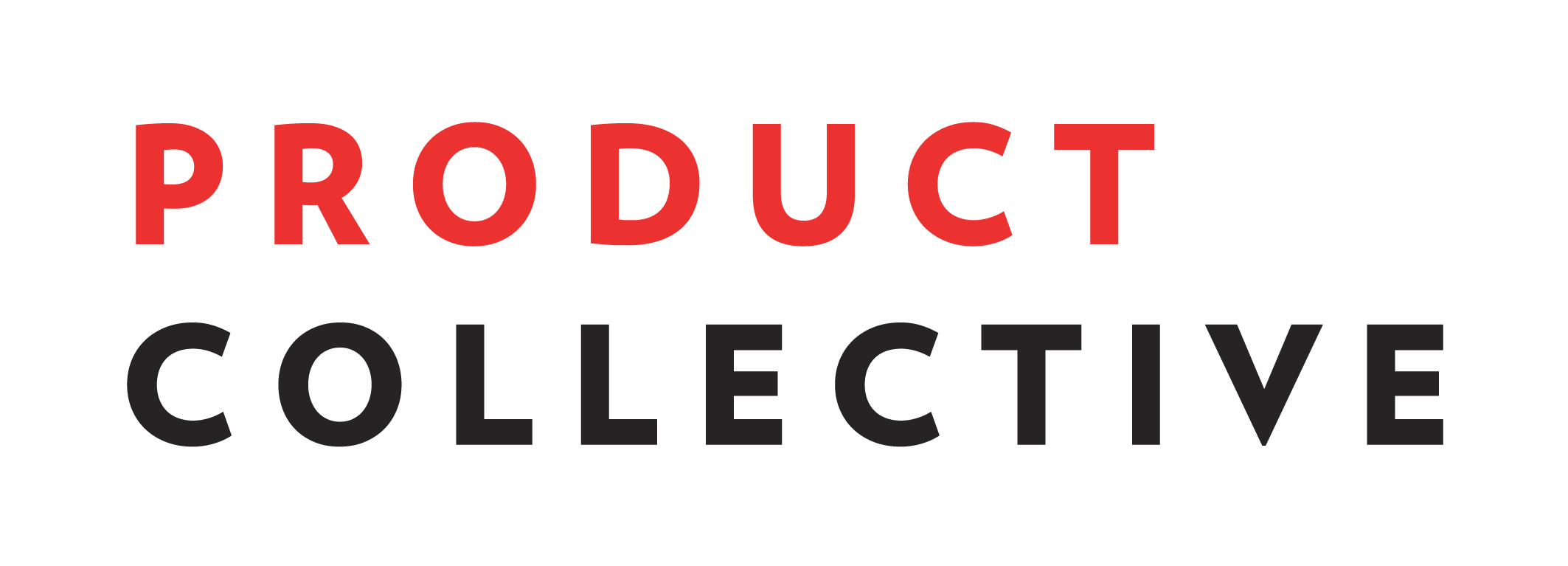With the pace of tech moving like no other time in history, product managers find themselves at the intersection of innovation, business objectives, and ethical responsibility. As digital products become increasingly integrated into our daily lives, shaping behaviors and influencing societies, the ethical implications of these creations have never been more profound or far-reaching. From social media platforms that can sway public opinion to AI systems that make decisions affecting millions, the products we build can transform the world—for better or worse.
The growing importance of ethics in product management stems from recognizing that great responsibility comes with great power. As product leader, Kasia Chmielinski, aptly put it in their keynote talk at the Virtual edition of INDUSTRY: The Product Conference, “Digital products can have a significant impact on the users—from saving lives to exposing people to harmful content, encouraging unhealthy habits, and contributing to climate change.” This stark reality underscores the need for product managers to consider not just what can be built but what should be built.
Key ethical challenges in tech today span a wide spectrum. Data privacy and user consent have become critical concerns in an era of big data and personalized experiences. Algorithmic bias threatens to perpetuate and amplify societal inequalities. The addictive nature of some digital products raises questions about digital well-being and mental health. Environmental sustainability, accessibility, and the implications of AI-driven decision-making add further complexity to the ethical landscape.
In this context, ethical product management emerges as a moral imperative and a crucial factor for long-term success, user trust, and positive societal impact. This essay explores the multifaceted nature of ethical product management, providing frameworks, insights, and practical approaches for navigating this complex terrain.
By examining the challenges, exploring decision-making frameworks, and exploring ways to build ethical product cultures, we will equip product managers with the tools they need to create products that meet business objectives, uphold ethical standards, and contribute positively to society. In doing so, we pave the way for a future where technology serves humanity’s best interests, fostering trust, well-being, and progress.
Understanding Ethical Product Management

At its essence, ethical product management is creating and maintaining products that meet business goals and prioritize user well-being and broader societal benefits. Roman Pichler eloquently captures this concept, stating, “An ethical product is an offering that does not cause any harm, neither to its users nor the planet.” This definition sets a high standard, challenging product managers to look beyond mere functionality and profitability to consider the far-reaching implications of their work.
Product managers must navigate a complex landscape fraught with tensions between business objectives and ethical considerations. On one side, there’s the pressure to generate revenue, meet growth targets, and stay competitive in a fast-paced market. On the other, there’s an increasing recognition of the profound impact that products can have on individuals and society. This dichotomy forms the core challenge of ethical product management.
In addressing this challenge, several key principles emerge as guideposts for ethical product management. User-centricity sits at the forefront, emphasizing prioritizing genuine user needs and well-being over short-term business gains. Transparency follows closely, calling for openness and honesty about product functionalities, data collection, and usage. Fairness and inclusivity demand that products be accessible and beneficial to diverse user groups, actively working to avoid bias and discrimination.
Privacy and data protection have become increasingly critical in our data-driven world, requiring product managers to handle user information with the utmost respect and responsibility. Environmental sustainability pushes the consideration of ecological impact throughout a product’s lifecycle. Lastly, social responsibility asks product managers to evaluate and strive for positive societal impact through their products.
These principles align closely with the approach Josh Hart describes at The Lego Group, where the creation of ethical product principles serves as a compass for decision-making. By embedding these principles into the fabric of product development, teams can more consistently navigate the complex ethical terrain they face.
The role of product managers in this ethical landscape is pivotal. As AI product leader, John Haggerty, points out, Product managers play a critical role in championing ethical values and promoting a culture of ethical decision-making within the organization. Their unique position, bridging various departments and stakeholders while maintaining a holistic view of the product, places them at the center of ethical decision-making.
This central role requires product managers to balance multiple, often competing, considerations. They must meet business objectives and growth goals while genuinely addressing user needs and improving lives. They need to leverage available technologies responsibly, always considering their decisions’ potential positive and negative impacts. This balancing act demands a strong ethical framework and the ability to make principled decisions, often in the face of conflicting pressures.
To navigate these challenges effectively, product managers must develop a keen ethical sensibility. This involves cultivating deep empathy, truly understanding and considering the perspectives of diverse user groups. It requires developing foresight to anticipate potential ethical issues before they arise. Collaboration becomes crucial, involving engaging with various stakeholders to gain different ethical perspectives. Continuous learning and staying informed about evolving ethical issues in technology and best practices in addressing them are essential.
Moreover, ethical considerations should be embedded into every stage of the product development lifecycle. From ideation and design through development, testing, launch, and ongoing maintenance, ethical thinking should be a constant companion to product decisions.
It’s crucial to recognize that ethical product management is not a one-time checkbox but an ongoing process. As technologies evolve and societal norms shift, what’s considered ethical may change. Therefore, product managers must remain vigilant and adaptable, constantly reassessing the ethical implications of their products. By embracing these principles and responsibilities, product managers can lead the way in creating products that succeed in the market and contribute positively to society.
Understanding and implementing ethical product management is no longer optional—it’s a necessity for creating sustainable, trusted, and truly valuable products. Kasia Chmielinski stresses that it’s important that Product Managers take responsibility for the ramifications of the products they create and make ethically sound product decisions. This responsibility forms the cornerstone of ethical product management, guiding the creation of products that genuinely improve lives while navigating the complex ethical challenges of our digital age.
Ethical Challenges in Modern Product Management

Data privacy and user consent are among the most pressing issues in modern product management. With the increasing sophistication of data collection and analysis techniques, products can gather unprecedented information about their users. While this data can drive personalization and improve user experiences, it also raises significant privacy concerns. John Haggerty emphasizes the importance of “informed consent by the user,” noting that data collection and usage transparency are crucial for building trust. Product managers must grapple with questions like How much data is necessary to collect? How can we ensure users truly understand what they’re consenting to? How do we balance personalization with privacy?
The challenge of data ethics and responsible collection practices is closely related to privacy concerns. Kasia Chmielinski points out that data is the foundation of all AI solutions, no matter what you’re building. This means that ethical considerations must begin at the data collection stage. Product managers need to consider the legality of their data practices and their ethical implications. This includes ensuring diverse and representative data sets, avoiding biases in data collection, and considering the potential for data misuse or unintended consequences.
The rise of AI and machine learning has introduced a new layer of complexity to product ethics. Algorithmic bias is a significant concern, as AI systems can perpetuate or amplify existing societal biases. For instance, AI-driven hiring tools have been found to discriminate against certain demographic groups, while facial recognition systems have shown lower accuracy rates for women and people of color. Product managers must be vigilant in identifying and mitigating these biases, which often require looking beyond the code to the underlying data and assumptions that inform AI models.
Transparency in AI-driven products presents another challenge. As AI systems become more complex, their decision-making processes can become opaque, leading to what’s often referred to as the “black box” problem. John Haggerty stresses the importance of “being able to explain” AI systems to users, even in simplified terms. Product managers must find ways to make AI-driven features and decisions more understandable and accountable to users.
The addictive nature of many digital products has also come under scrutiny. Features designed to maximize engagement can sometimes cross the line into exploitative territory, negatively impacting users’ mental health and well-being. As Roman Pichler notes, “Engagement then becomes a euphemism for addiction.” Product managers must wrestle with the ethical implications of design choices that may boost key metrics but at the cost of user well-being. This challenge requires a careful balancing act between business goals and ethical considerations.
Accessibility and inclusive design represent another crucial ethical consideration. Products that aren’t accessible to users with disabilities not only exclude a significant portion of the population but also often fall short of legal requirements. Beyond legal compliance, there’s an ethical imperative to ensure that products are usable by as wide a range of people as possible. This challenge extends to considerations of cultural inclusivity and avoiding designs that may alienate or marginalize certain groups.
Environmental sustainability is an emerging ethical concern in product management. The environmental impact of digital products, from the energy consumption of data centers to the e-waste generated by hardware, is becoming increasingly apparent. Product managers need to consider the ecological footprint of their products throughout their lifecycle, from development to disposal.
One of the most complex challenges is keeping humans in the loop throughout the process, especially in AI-driven systems. Kasia Chmielinski argues that it’s crucial to ensure that “humans are doing the things that humans are good at and machines are doing the things that machines are good at.” This means designing systems that leverage AI capabilities while still maintaining human oversight and intervention where necessary. It’s a delicate balance that requires careful consideration of where and how to integrate human judgment into automated processes.
Product managers must grapple with the broader societal implications of their products, too. Technologies like social media platforms have demonstrated the power to influence public opinion, shape social norms, and even impact democratic processes. This level of influence comes with significant ethical responsibilities. Product managers must consider how their product affects individual users and how it might shape society at large.
Navigating these ethical challenges requires awareness, foresight, and principled decision-making. It demands that product managers look beyond immediate metrics and short-term gains to consider the long-term and often unforeseen impacts of their products. As the ethical landscape continues to evolve, staying informed and adaptable will be key to creating products that are not only successful but also ethically sound and socially responsible.
Approaches for Ethical Decision-Making in Product Development

Having robust approaches to decision-making is crucial. These approaches serve as guiding principles, helping product managers navigate the often murky waters of ethical dilemmas and make decisions that align with business objectives and ethical standards.
Josh Hart emphasizes the importance of team engagement in developing these principles. By involving the entire product team in the process, organizations can ensure that ethical considerations are not just top-down mandates but are woven into the fabric of the product development culture. This collaborative approach helps create principles that resonate with the team and are more likely to be applied in day-to-day decision-making.
Hart’s approach involves starting discussions within the team about products that have negatively impacted their lives. This exercise helps team members connect personally with the ethical implications of product decisions. From there, the team can identify key ethical concerns relevant to their product and user base. The resulting principles might cover areas such as inclusivity, understanding users’ hardships, or ensuring accessibility for all users.
Kasia Chmielinski offers another perspective on ethical product development, emphasizing the importance of considering the “could” versus “should” question. This thought encourages product managers to look beyond what is technically feasible to consider whether a particular feature or product should be developed. It’s crucial in an age where technological capabilities often outpace ethical considerations.
Implementing ethical practices throughout the product lifecycle is also an important component. This involves incorporating ethical considerations at every stage, from initial ideation to post-launch monitoring. During the design phase, for instance, product managers might employ techniques like ethical impact assessments, similar to privacy impact assessments but broader in scope. These assessments can help identify potential ethical issues early in development when changes are easier and less costly to implement.
Ethical considerations in the development and testing phases might involve ensuring diverse representation in user testing groups, conducting thorough bias audits of AI systems, or implementing robust data protection measures. Post-launch, it’s important to have mechanisms in place for ongoing ethical monitoring and iteration. This might include regular ethical audits, user feedback channels specifically focused on ethical concerns, or cross-functional ethics committees to address emerging issues.
Balancing business objectives with user well-being is one of the most challenging aspects of ethical product management. John Haggerty talks about the importance of this balance, noting that while meeting business goals is essential, it shouldn’t come at the cost of compromising ethical principles. One approach for addressing this balance is to consider the concept of “ethical debt,” analogous to technical debt in software development. This idea encourages product managers to consider the long-term ethical implications of short-term decisions and proactively allocate resources to address potential ethical issues.
Another useful approach is stakeholder mapping with an ethical lens. This involves identifying all stakeholders affected by a product decision—not just users and the business but also potentially impacted communities, the environment, and future generations. By considering this broader range of stakeholders, product managers can make more holistic and ethically sound decisions.
Building an Ethical Product Culture

While approaches and guidelines are essential, truly ethical product management requires fostering a culture where ethical considerations are woven into everyday decision-making. Building such a culture is a multifaceted endeavor that requires commitment at all levels of an organization, from leadership to individual contributors.
John Haggerty believes that product managers are critical in championing ethical values and promoting a culture of ethical decision-making within the organization. This championing starts at the top, with leaders who articulate ethical values and embody them in their actions and decisions. Leaders consistently prioritizing ethical considerations alongside business objectives sends a powerful message throughout the organization.
Creating and implementing ethical guidelines and policies is crucial in building an ethical product culture. However, as Josh Hart’s experience at The Lego Group illustrates, these guidelines are most effective when developed collaboratively rather than imposed from above. By involving team members in creating ethical principles, organizations can ensure that these principles resonate with the team and reflect its diverse perspectives. This collaborative approach also helps create a sense of ownership and commitment to ethical practices among team members.
Training and empowering teams to make ethical decisions is another key aspect of building an ethical product culture. This goes beyond simply communicating guidelines; it involves equipping team members with the skills and knowledge needed to navigate complex ethical dilemmas. This might include workshops on ethical reasoning, case studies of ethical challenges in product development, or simulations that allow team members to practice applying ethical principles in realistic scenarios.
Encouraging ethical discussions and debates within the team is crucial for maintaining a vibrant ethical culture. As Kasia Chmielinski suggests, product teams should regularly engage in conversations about the ethical implications of their work. This could involve dedicated time in team meetings for ethical reflections or even establishing an “ethics champion” role that rotates among team members. By normalizing these discussions, teams can create an environment where ethical concerns are openly voiced and thoughtfully addressed.
Integrating ethics into product development is another effective way to build an ethical culture. This might involve adding ethical considerations to product requirement documents, including ethical impact assessments in the design phase, or incorporating ethical metrics into product success criteria. By making ethics a formal part of the development process, organizations can ensure that it’s not treated as an afterthought but an integral part of product creation.
Creating a culture of accountability is also crucial. This involves celebrating ethical successes and addressing ethical missteps openly and constructively. Ethical lapses should be viewed as opportunities for learning and improvement rather than occasions for blame. This approach encourages transparency and helps build a culture where team members feel safe raising ethical concerns.
A culture that fosters ethical product management can’t be done without being open to learning and iterating accordingly. The ethical landscape in technology is constantly evolving, with new challenges emerging as technologies advance. Organizations need to stay informed about these developments and be willing to evolve their ethical practices accordingly. This might involve regular ethics training updates, subscribing to ethics in technology publications, or participating in industry forums on ethical product development.
Lastly, it’s important to recognize that building an ethical product culture is an ongoing process, not a one-time initiative. It requires consistent effort, regular reinforcement, and a willingness to grapple with difficult questions. By committing to this process, organizations can create an environment where ethical considerations are not considered constraints but integral components of building successful, sustainable, and socially responsible products.
Measuring Ethical Impact and Future Trends

Emerging technologies and shifting societal expectations are shaping the future landscape of ethical considerations in product development. This dual focus on measurement and future trends is essential for product managers looking to create lasting, positive impact through their work.
Developing ethical KPIs (Key Performance Indicators) and metrics presents a unique challenge. Unlike traditional business metrics, ethical impacts are often qualitative and long-term, making them harder to quantify. However, as Kasia Chmielinski pointedly notes, “You make what you measure.” This insight underscores the importance of finding ways to quantify the ethical impact, as these measurements will inevitably shape product decisions.
One approach to developing ethical metrics is to focus on proxies that indicate ethical behavior or outcomes. For instance, a product team might track the number of user privacy complaints, the frequency of algorithmic bias incidents, or the diversity of user testing groups. While these metrics don’t capture the full scope of ethical impact, they provide tangible data points that can guide decision-making and highlight areas for improvement.
Another method involves creating composite scores that combine various ethical considerations. For example, an “ethical impact score” could incorporate data privacy practices, accessibility features, environmental sustainability, and user well-being metrics. While such scores inevitably involve subjectivity in their weighting, they can provide a holistic view of a product’s ethical standing and facilitate comparisons over time or across different products.
Building and maintaining user trust is another critical aspect of ethical product management that requires careful measurement. Trust is foundational to long-term product success, yet it’s notoriously difficult to quantify. Some companies have begun experimenting with “trust indexes” that combine user surveys, behavioral data, and external reputation metrics to gauge overall trust levels. Regular monitoring of these trust metrics can help product teams identify potential ethical issues early and take corrective action.
While sometimes challenging to measure in the short term, the long-term benefits of ethical practices can significantly impact a company’s success. These benefits include enhanced brand reputation, increased user loyalty, better talent attraction and retention, and reduced regulatory risks. While these outcomes may not be immediately apparent in quarterly reports, they contribute substantially to a company’s long-term sustainability and success.
Looking toward the future, several emerging technologies are poised to introduce new ethical considerations for product managers. Artificial General Intelligence (AGI), for instance, raises profound questions about decision-making autonomy and the role of human oversight (back to the “could vs. should” question that was raised earlier in this essay). Product managers must grapple with the ethical implications of creating products that may have unprecedented levels of autonomy and impact.
The rise of immersive technologies like virtual and augmented reality presents another frontier of ethical challenges. These technologies have the potential to blur the lines between digital and physical experiences, raising new questions about privacy, psychological impact, and the nature of reality itself. Product managers working in these fields must consider creating safe, ethical spaces in virtual environments and managing the potential for addiction or detachment from the physical world.
The evolving regulatory landscape is another crucial factor shaping the future of ethical product management. As governments and international bodies grapple with the rapid pace of technological change, new regulations around data privacy, AI ethics, and digital rights will likely emerge. Product managers must stay ahead of these regulatory trends, not just for compliance reasons, but to ensure their products align with emerging societal expectations of ethical technology.
Lastly, the role of product managers in shaping ethical tech policies is likely to grow. Product managers are uniquely positioned to contribute to policy discussions as the individuals closest to both the technological capabilities and user needs. This might involve participating in industry standards committees, engaging with regulatory bodies, or contributing to public discourse on tech ethics. Product managers can help ensure that future policies are ethically sound and practically implementable by taking an active role in these conversations.
As we look to the future, it’s clear that ethical considerations will only become more central to product management. The products we create today will shape the world of tomorrow, and with that power comes the responsibility to consider their full ethical implications. By developing robust measurement frameworks and staying attuned to emerging trends, product managers can create a more ethical, sustainable, and human-centered technological future.
Summing it all up – A Call for Ethical Leadership in Product Management
Throughout this exploration, we’ve seen how ethical considerations touch every aspect of product development, from understanding user needs to implementing AI technologies.
The challenges are significant: protecting user privacy, mitigating algorithmic bias, ensuring inclusivity, and considering the broader societal impacts of our products. Yet, as we’ve discovered, powerful frameworks and strategies are available to help us meet these challenges head-on. By implementing ethical decision-making processes, fostering a culture of ethical awareness, and developing metrics to measure our impact, we can create products that succeed in the market and contribute positively to society.
The future of product management is inextricably linked with ethical considerations. As technologies continue to advance and our products become increasingly integrated into people’s lives, the responsibility of product managers will only grow. We must stay vigilant, continuously educating ourselves about emerging ethical issues and adapting our practices accordingly.
But knowledge alone is not enough. The time for action is now. As product managers and leaders, we have the power to shape not just our products but the future of technology and its impact on humanity. This is our call to action:
- Commit to embedding ethical considerations into every stage of your product development process.
- Foster a culture of ethical awareness within your teams and organizations.
- Develop and implement ethical metrics to measure the true impact of your products.
- Stay informed about emerging technologies and their ethical implications.
- Engage in broader discussions about tech ethics and contribute to shaping ethical standards in our industry.
Remember, as John Haggerty emphasized, we must stay “in love with the problem, not the solution.” By focusing on our users’ genuine needs and the ethical implications of our work, we can create products that truly make a positive difference.
The future of ethical product management is in our hands. Let’s build it together.


